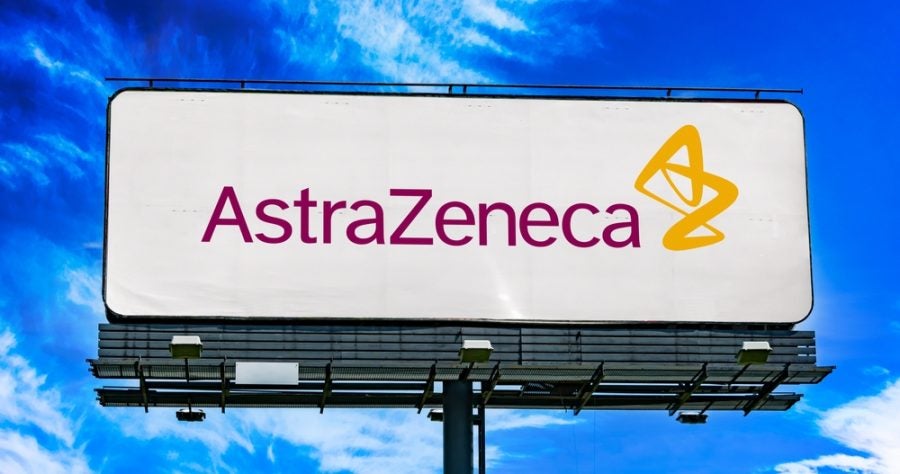
AstraZeneca has announced its plans to acquire US-based biopharmaceutical company CinCor in a $1.8 billion deal, signalling the company’s interest in renal and cardiovascular therapies
Last August, CinCor Pharma raised $258.7 million dollars in a public offering of common stock and pre-funded warrants, and. the deal with AstraZeneca now signals the company’s growth strategy. In a January 9 press release accompanying the announcement, CinCor’s CEO Marc de Gadriel said, “We are excited about the proposed acquisition of CinCor Pharma by AstraZeneca as we believe it offers the prospect of accelerating the development timeline and expanding the breadth of benefits patients with cardiorenal diseases might obtain from baxdrostat, if approved”. The acquisition news came as the Annual JP Morgan Healthcare Conference was kickstarted in San Francisco on 9 January.

Discover B2B Marketing That Performs
Combine business intelligence and editorial excellence to reach engaged professionals across 36 leading media platforms.
AstraZeneca will make an upfront payment of $1.3 billion, which along with maximum potential contingent payments would make the deal worth $1.8 billion, as per the release.
CinCor’s lead clinical candidate baxdrostat (CIN-107) is an oral, small molecule aldosterone synthase inhibitor under development for the treatment of chronic kidney disease, resistant hypertension, and primary hyperaldosteronism. Aldosterone plays a key role in the pathology of these diseases by regulating electrolyte balance and blood pressure, and aldosterone synthase is the enzyme responsible for the regulation of aldosterone in the adrenal gland.
Once the deal is completed, CinCor’s baxdrostat will join AstraZeneca’s cardiovascular, renal and metabolic pipeline, which boasts of at least 20 drugs. Baxdrostat is currently in Phase II clinical trials for chronic kidney disease and primary hyperaldosteronism. According to the World Health Organization, 1.3 billion people worldwide experience some form of hypertension. In 2019, kidney diseases accounted for 254,028 deaths in 2019, as per the Pan American Health Organization.
Last August, in a Reuters Newsmakers online forum, AstraZeneca’s CEO Pascal Soriot said the company has been considering ways to expand its reach through different therapy areas like cardiovascular disease and kidney disease. “There is a huge unmet need still in cardiovascular disease. People forget this, but cardiovascular disease continues to be the biggest killer in the world ahead of cancer,” he said He continued on to say, “People die of heart attacks, they die of kidney failures, and they die of heart failure, so we want to continue building our portfolio of innovative products in this area”.

US Tariffs are shifting - will you react or anticipate?
Don’t let policy changes catch you off guard. Stay proactive with real-time data and expert analysis.
By GlobalDataA shift towards cardiovascular disease
This CinCor acquisition is one of many moves the pharmaceutical giant is making to broaden its cardiovascular portfolio. Between 2018 and 2022 the drug company prioritised cardiovascular deals and completed six deals totaling $40 billion in value, as per GlobalData. AstraZeneca currently has eight ongoing Phase III cardiovascular clinical trials.
Alongside, the company has made strides in other areas too. Last year, AstraZeneca acquired Neogene Therapeutics and announced a partnership with Huma Therapeutics within the oncology space.
In November, CinCor announced topline data from its Phase II HALO trial (NCT05137002), where baxdrostat met its primary endpoint by achieving statistically significant placebo-adjusted reduction in systolic blood pressure. Baxdrostat reduced systolic blood pressure in study subgroups, including Black/African American patients who make up approximately 81–89% of the hypertensive population in the US.
Acquisition plans for 2023
At the Reuters event, Soriot said, “Our focus is mostly on small to mid-sized bolt-on acquisitions, so products or companies that we can integrate in AstraZeneca and add value to.” This aligns with experts who anticipated a prioritization of bolt-on deals in 2023. Subin Baral, Global Life Sciences Deals Leader at Ernst and Young says, “A lot of deal value will come from bolt-on transactions… I think getting early access to innovation is going to be key and that is going to happen with alliance partnerships and bolt-on acquisitions.”
Baral goes on to say such deals may be more common instead of the “mega mergers” of previous years. “The pricing and the valuation of some of these assets to really justify the price and execution risk of these mega mergers are way too high. It outweighs the business case”.
“We have indicated to investors that we want to be a sustainably growing company, so until 2025 we have strong growth ahead of us, but we also continue to believe that we can grow very strongly past 2025,” said Soriot.




